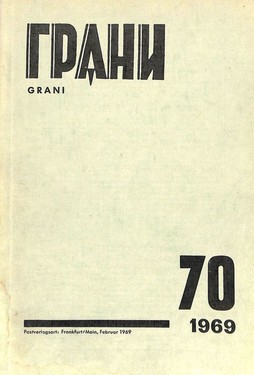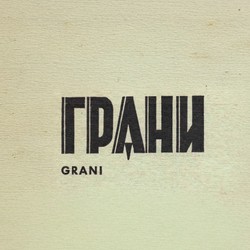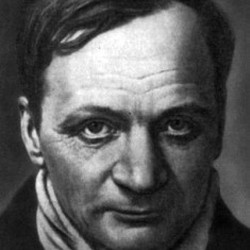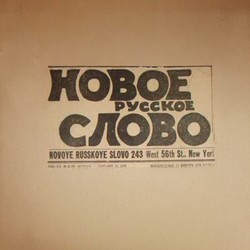Надо признать, что эта книжка вообще едва ли не самый лучший из всех 70 номеров журнала. В ней напечатана прекрасная повесть Андрея Платонова “Котлован”. В примечании редакции сказано, что повесть эта, написанная А. Платоновым в начале 30-х годов, получена редакцией “Граней” из России и публикуется впервые.
“Котлован” – большое событие в русской пореволюционной литературе. Для русской художественной прозы повесть имеет такое же значение, какое для поэзии имеет сборник стихотворений Заболоцкого “Столбцы”. Повесть Платонова трудна – в нее надо вчитываться и вдумываться. Она может увлечь лишь пытливого читателя, она не из тех, которые проглатываешь залпом.
Бывает, что люди видят сны, которые, в сущности, являются продолжением их реальной жизни и деятельности. Но в такие сновидения могут врасти бредовые или даже фантастические мотивы. При этом во сне бредовое и фантастическое представляется настолько естественным и натуральным, что его не отличить от реальности. Повесть “Котлован” и напоминает такое сновидение, превращенное в сплав натуралистических и бредовых элементов. В этом смысле повесть Андрея Платонова похожа на живопись Павла Филонова, которая стоит где-то посреди между современным сюрреализмом и его предтечами из метафизической школы.
Андрей Платонов написал о великом разорении русской земли, вызванном принудительной коллективизацией и массовым раскулачиванием начала 30-х годов. В повести есть сатирическая струя, только смех Андрея Платонова – это горестный смех отчаявшегося человека. Такой смех может довести до самоубийства. Это то, что психиатры называют “смехом сатаны”. И странное дело, Россия, изображенная Андреем Платоновым во сне, оказывается более реально и более внутренне правдивой, нежели та Россия, которая воспевалась многочисленными колхозными апологетами в Советском Союзе.
В повести – два типа персонажей: крестьяне самого конца 20-х годов и сезонные рабочие. Есть в “Котловане” и одинокий интеллигент, инженер. У сезонных рабочих тех времен был свой язык – яркий, сочный, своеобразный. Такой язык вымирает, и вот почему не только литературовед, но лингвист должен быть признателен Андрею Платонову за то, что он сохранил эту прослойку русской народной речи. Коллективизация представляется Платонову тем, чем она была на самом деле: непоправимой, трагической ошибкой, родом коллективного безумия.
В Советском Союзе Андрея Платонова переоткрыли – его начинают там ценить больше и больше. И я горжусь тем, что в своей вышедшей по-английски книге “Ранние советские писатели” я это предвидел. Одновременно растет интерес к творчеству Андрея Платонова и в некоммунистических странах. Так, о его творчестве пишутся две диссертации: итальянка Монгольфьери пишет о нем в Италии, а Алексей Киселев, сын руководителя Свято-Серафимовского фонда, священника Александра Киселева, пишет для одного из американских университетов докторскую диссертацию.
Так что повесть “Котлован” напечатана журналом “Грани” вовремя.
It must be admitted, that this issue is, generally, perhaps the best out of all 70 issues of the journal. It contains Andrei Platonov’s splendid novella “The Foundation Pit.” The editorial note says the following – that this novella, written by A. Platonov in the early 30’s, was received by the editors of Grani from Russia and is being published for the very first time.
“The Foundation Pit” is a great event in Russian post-revolutionary literature. It is as important for Russian prose as the collection of Zabolotsky’s works, titled “Columns,” are for Russian poetry. Platonov’s novella is difficult – and requires attentive reading and understanding from its audience. It may satisfy the inquisitive reader, and is not for those who greedily swallow its contents in one gulp.
It sometimes happens, that people see dreams which are material, and are the continuation of their reality and activities. But it is possible that within such dreams, delirious and even fantastical motifs may take place. Having said that, all dreams which are delirious and fantastical appear to be so life-like and natural, that one is unable to differentiate them from reality. “The Foundation Pit” reminds one of such night visions, fusing together the naturalistic and delirious elements. In this sense, Andrei Platonov’s novella is similar to the works of the painter Pavel Filonov, who stands somewhere between contemporary surrealism and his precursors in the school of metaphysics.
Andrei Platonov wrote about the great devastation of Russian land caused by forced collectivization and mass dispossession of the kulaks in the early 30’s. The novel has a string of satire woven into it, but Andrei Platonov’s laughter is one that belongs to a sorrowful and desperate individual. Such laughter may even lead to suicide. This is what psychiatrists commonly refer to as “the devil’s laughter.” And strangely enough, the Russia which is portrayed by Andrei Platonov through a dream ends up being more realistic and inherently accurate than the Russia to which a multitude of collective Soviet apologists sing odes to.
The story contains two types of characters: peasants from the late 20’s, and seasonal laborers. “The Foundation Pit” also features one intellectual, an engineer. The seasonal laborers of that time had their own very specific language – bright, saturated, peculiar. This kind of language is dying out, and this is why not only literary scholars, but also linguists must thank Andrei Platonov for preserving this layer of Russian folk speech. Collectivization is presented by Platonov as it was seen in reality: an irreparable, tragic mistake, a type of collective insanity.
People begin to rediscover Andrei Platonov in the Soviet Union, where he is now read more and more. I am proud that in my book Early Soviet Writers, published in English, I was able to foresee this. At the same time, there is a growing interest in Andrei Platonov’s literature emerging in noncommunist countries. Thus, there are two dissertations being written about his oeuvre: the Italian author Mongolfieri is writing about him in Italy, and Alexey Kiselev – the son of the priest Alexander Kiselev, head of the St. Seraphim Foundation, is writing a doctoral dissertation for an American university.
So the story of “The Foundation Pit” was published by the magazine Grani just in time.
"





